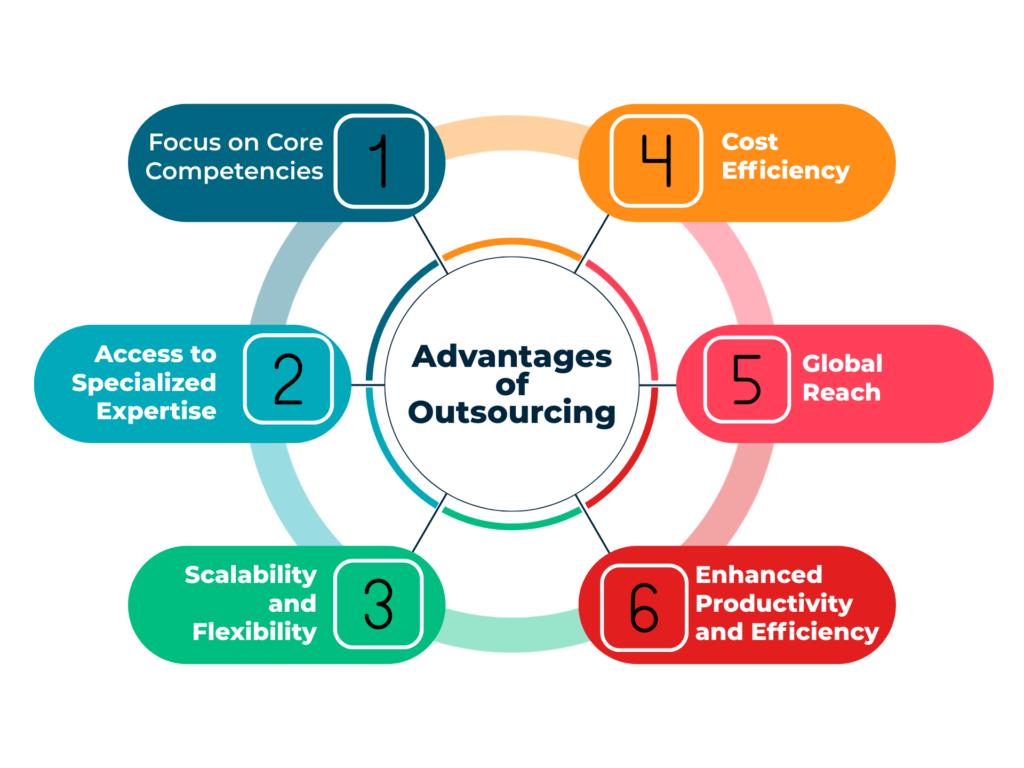Embracing Efficiency: Outsourcing in Global Operations
Outsourcing has become a common practice in global business operations, with companies looking to increase efficiency and reduce costs. By outsourcing certain tasks or processes to third-party vendors, businesses can focus on their core competencies and streamline their operations. However, there are both pros and cons to outsourcing that companies need to consider before making the decision to outsource.
One of the main advantages of outsourcing is the potential for increased efficiency. By delegating non-core tasks to external vendors who specialize in those areas, companies can benefit from their expertise and experience. This can lead to faster turnaround times, improved quality, and cost savings. For example, a technology company may choose to outsource their customer service operations to a call center in a different country, allowing them to provide 24/7 support to their customers without having to invest in building their own customer service team.
Outsourcing can also help businesses access a larger talent pool. By partnering with vendors from different parts of the world, companies can tap into a diverse range of skills and expertise that may not be available locally. This can be especially beneficial for companies looking to expand into new markets or industries, as they can leverage the knowledge and experience of their outsourcing partners to navigate unfamiliar territory.
Another advantage of outsourcing is the ability to scale operations quickly. Instead of hiring and training new employees to handle increased workloads, companies can simply allocate more resources to their outsourcing partners to meet growing demand. This flexibility can be especially valuable for businesses with fluctuating workloads or seasonal peaks, as they can easily adjust their outsourcing arrangements to meet changing needs.

Image Source: graffersid.com
However, outsourcing also has its drawbacks that companies need to be aware of. One of the main concerns with outsourcing is the loss of control over business operations. When tasks are outsourced to external vendors, companies may find it difficult to monitor and manage the quality of work being done. This can lead to communication issues, delays, and inconsistencies in performance, which can ultimately impact the company’s reputation and bottom line.
Additionally, outsourcing can sometimes result in hidden costs. While outsourcing may initially seem like a cost-effective solution, companies need to consider the long-term expenses associated with managing and coordinating with multiple vendors. There may also be additional costs involved in transferring knowledge and expertise to outsourced teams, as well as potential risks such as data security breaches or intellectual property theft.
Another potential downside of outsourcing is the risk of dependency on third-party vendors. If a company relies too heavily on outsourcing for key business functions, they may become vulnerable to disruptions in the supply chain or changes in vendor pricing. This can create instability and uncertainty in the business operations, making it difficult for companies to adapt to unexpected challenges or market changes.
In conclusion, while outsourcing can offer many benefits in terms of efficiency, access to talent, and scalability, it also comes with its own set of challenges and risks that companies need to carefully weigh. By considering the pros and cons of outsourcing in the context of their global business operations, companies can make informed decisions that align with their strategic goals and objectives.
Balancing Act: Weighing the Pros and Cons of Outsourcing
Outsourcing has become a common practice in global business operations, offering companies the opportunity to streamline processes, reduce costs, and access specialized skills and resources. However, like any business decision, there are both pros and cons to outsourcing that need to be carefully considered. In this article, we will explore the balancing act of weighing the pros and cons of outsourcing in global business operations.
On the one hand, one of the major benefits of outsourcing is cost savings. By outsourcing certain tasks or processes to a third-party provider, companies can reduce their operational expenses, labor costs, and overhead. This can lead to significant savings, allowing companies to reallocate resources to other areas of their business or invest in growth opportunities. Additionally, outsourcing can also provide access to specialized skills and expertise that may not be available in-house, allowing companies to benefit from the knowledge and experience of external providers.
However, outsourcing is not without its drawbacks. One of the main concerns with outsourcing is the potential loss of control over key business functions. When tasks are outsourced to external providers, companies may find it challenging to maintain quality control, ensure timely delivery, and protect sensitive information. This lack of control can lead to communication gaps, misunderstandings, and ultimately, a decrease in overall efficiency and productivity. Additionally, outsourcing can also present risks related to data security, intellectual property protection, and compliance with regulations and standards.
Despite these challenges, there are strategies that companies can implement to mitigate the risks associated with outsourcing. For example, establishing clear communication channels, setting performance metrics and milestones, and conducting regular audits and assessments can help ensure that outsourced activities are being managed effectively and in accordance with company standards. Additionally, companies can also consider diversifying their outsourcing partners or locations to reduce reliance on a single provider and minimize potential disruptions to their operations.
In conclusion, the decision to outsource in global business operations is a balancing act that requires careful consideration of the pros and cons. While outsourcing can offer significant benefits in terms of cost savings, access to specialized skills, and resource optimization, it also comes with risks related to control, quality, and security. By weighing the pros and cons of outsourcing and implementing effective strategies to mitigate risks, companies can maximize the benefits of outsourcing while minimizing potential drawbacks. Ultimately, outsourcing can be a valuable tool for companies looking to stay competitive and agile in today’s fast-paced global business environment.
The Benefits and Challenges of Outsourcing in International Business